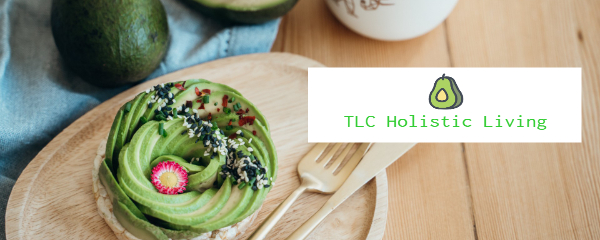Welcome to TLC Holistic Living!
Here you will find the best tips to improve health.

TLC Blog Articles


Top Exercises To Focus On Over 40
As we age, staying active becomes increasingly important for maintaining overall health and well-being. For those over 40, exercise can help manage weight, improve cardiovascular health, enhance flexibility, and boost mental well-being. However, not all exercises are created equal when it comes to maximizing benefits for this age group. Here are the top five exercises to focus on for individuals over 40, each offering unique advantages that cater to the changing needs of the body.
Firstly, strength training should be a cornerstone of any fitness routine for those over 40. As we age, we naturally lose muscle mass, a condition known as sarcopenia. Strength training exercises like squats, lunges, push-ups, and weight lifting help counteract this process by building and maintaining muscle mass. Moreover, increased muscle mass boosts metabolism, aids in weight management, and contributes to better overall strength and stability, reducing the risk of falls and injuries.
Secondly, cardiovascular exercises are essential for maintaining heart health and boosting endurance. Activities like brisk walking, cycling, swimming, or jogging are excellent choices. These exercises increase heart rate and improve circulation, helping to reduce the risk of heart disease, hypertension, and other cardiovascular issues. Additionally, regular cardio workouts enhance lung capacity and stamina, making daily activities easier to perform and improving overall energy levels.
Flexibility and balance exercises are also crucial for individuals over 40. Yoga and Pilates are particularly beneficial, as they emphasize stretching, balance, and core strength. These exercises improve flexibility, which tends to decrease with age, reducing the risk of injury. They also enhance balance and coordination, which are vital for preventing falls. The meditative aspects of yoga and Pilates also promote mental clarity and stress reduction, contributing to better mental health.
Fourthly, functional fitness exercises should not be overlooked. These exercises mimic everyday activities and improve overall body mechanics. Movements such as squatting, bending, pushing, pulling, and twisting are incorporated into functional fitness routines. By focusing on these movements, individuals can improve their ability to perform daily tasks with ease and reduce the risk of injury in day-to-day activities.
Lastly, incorporating high-intensity interval training (HIIT) can be incredibly beneficial for those over 40, provided there are no pre-existing health concerns that contraindicate this form of exercise. HIIT involves short bursts of intense activity followed by periods of rest or low-intensity movement. This approach is time-efficient and has been shown to improve cardiovascular health, boost metabolism, and enhance insulin sensitivity. However, it is important to approach HIIT with caution and possibly consult with a fitness professional to tailor the intensity to individual fitness levels.
In conclusion, focusing on these top five exercises—strength training, cardiovascular workouts, flexibility and balance exercises, functional fitness, and HIIT—can provide a comprehensive fitness plan for those over 40. Each type of exercise offers unique benefits that address the physiological changes associated with aging, ensuring improved health and vitality. By incorporating these activities into a regular fitness routine, individuals can enjoy a more active lifestyle and reduce the risk of age-related health issues.
Top Supplements To Consider Over 40
As people age, maintaining optimal health and wellness becomes increasingly important. For individuals over 40, this often means making dietary adjustments and considering supplements to help fill nutritional gaps and support overall well-being. Here are the top five supplements that can be particularly beneficial for those over 40, each playing a unique role in promoting health.
Calcium and Vitamin D are crucial for maintaining bone health as we age. The risk of osteoporosis and bone fractures increases with age, especially for women post-menopause. Calcium is a primary building block for bones, while vitamin D helps the body absorb calcium more effectively. Together, they form a powerful duo in supporting bone density and reducing the risk of bone-related ailments. Experts typically recommend a combined supplement to ensure adequate intake, particularly for individuals who may not get enough from their diet alone.
Omega-3 fatty acids, commonly found in fish oil supplements, are essential for heart health. As cardiovascular disease risk increases with age, omega-3s can help reduce inflammation, lower blood pressure, and decrease triglyceride levels, all of which are important for maintaining a healthy heart. Additionally, omega-3 fatty acids have been linked to improved brain health, which can help combat age-related cognitive decline. For those who do not consume fish regularly, an omega-3 supplement can be a valuable addition to their daily regimen.
Coenzyme Q10 (CoQ10) is an antioxidant that plays a vital role in energy production and may help reduce the risk of chronic diseases. Natural levels of CoQ10 decrease with age, and supplementation can help replenish these levels, supporting cellular energy production and reducing oxidative stress. Some studies suggest that CoQ10 may benefit heart health and improve symptoms related to heart failure. It may also support muscle function and reduce fatigue, making it a popular supplement for those over 40.
B vitamins, particularly B12 and B6, are essential for energy production and cognitive function. As people age, the ability to absorb vitamin B12 from food can diminish, leading to deficiencies that may result in fatigue and memory issues. B vitamins support the nervous system and play a crucial role in mood regulation and brain health. Supplementing with B12 and B6 can help maintain energy levels and cognitive function, providing a boost to overall mental and physical well-being.
Lastly, probiotics are beneficial for digestive health, which can become more of a concern with age. The balance of good bacteria in the gut can shift over time, leading to digestive issues and impacting the immune system. Probiotics help restore this balance, promoting a healthy gut microbiome and improving digestion. They may also enhance immune function, which is particularly important as the immune system tends to weaken with age. Including a probiotic supplement can support digestive health and overall vitality for those over 40.
Incorporating these supplements into a daily routine, along with a balanced diet and regular exercise, can help individuals over 40 maintain health and vitality. However, it is essential to consult with a healthcare provider before beginning any new supplement regimen to ensure it aligns with individual health needs and conditions.